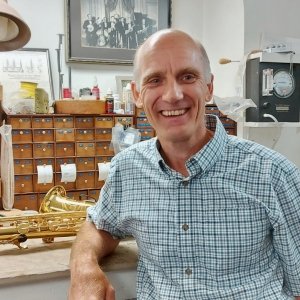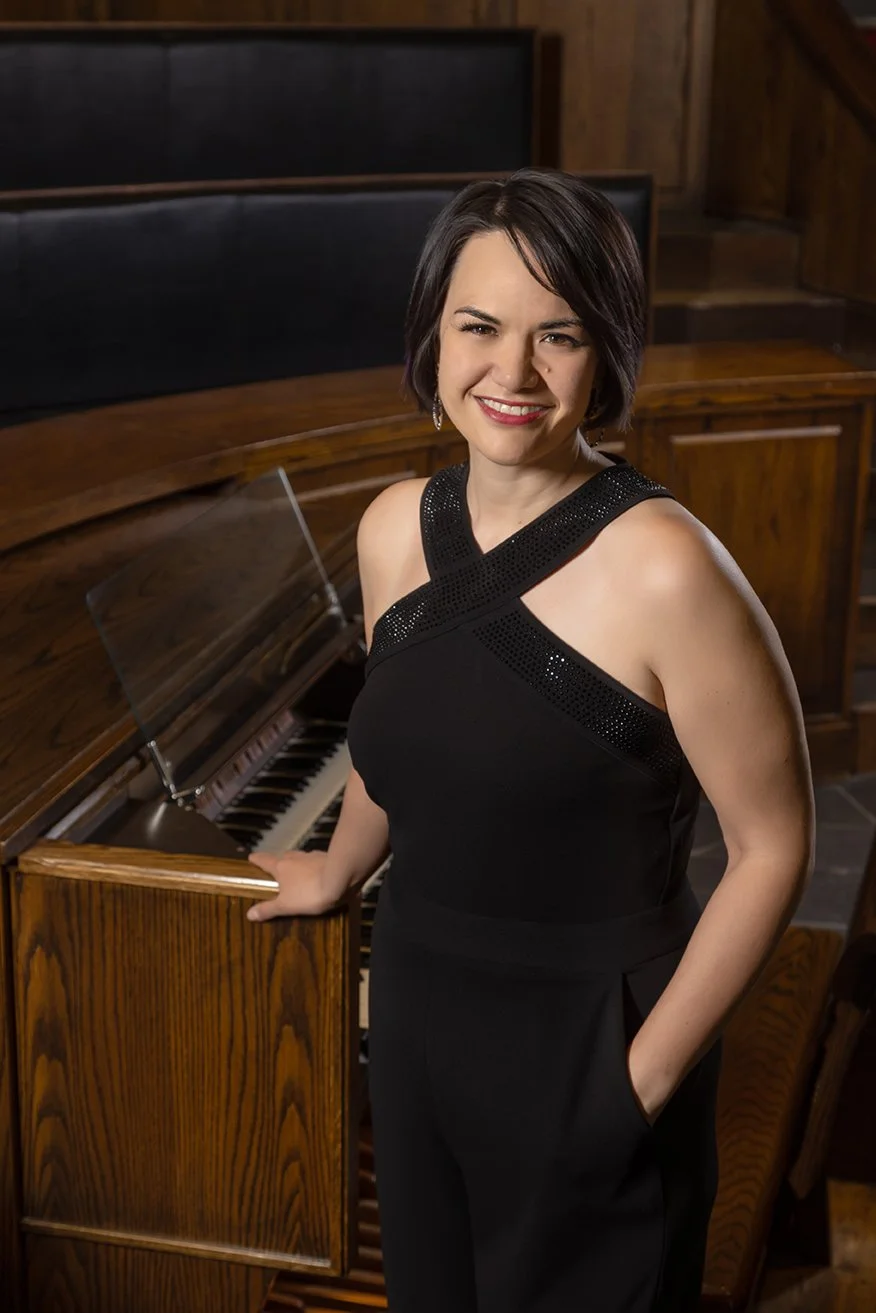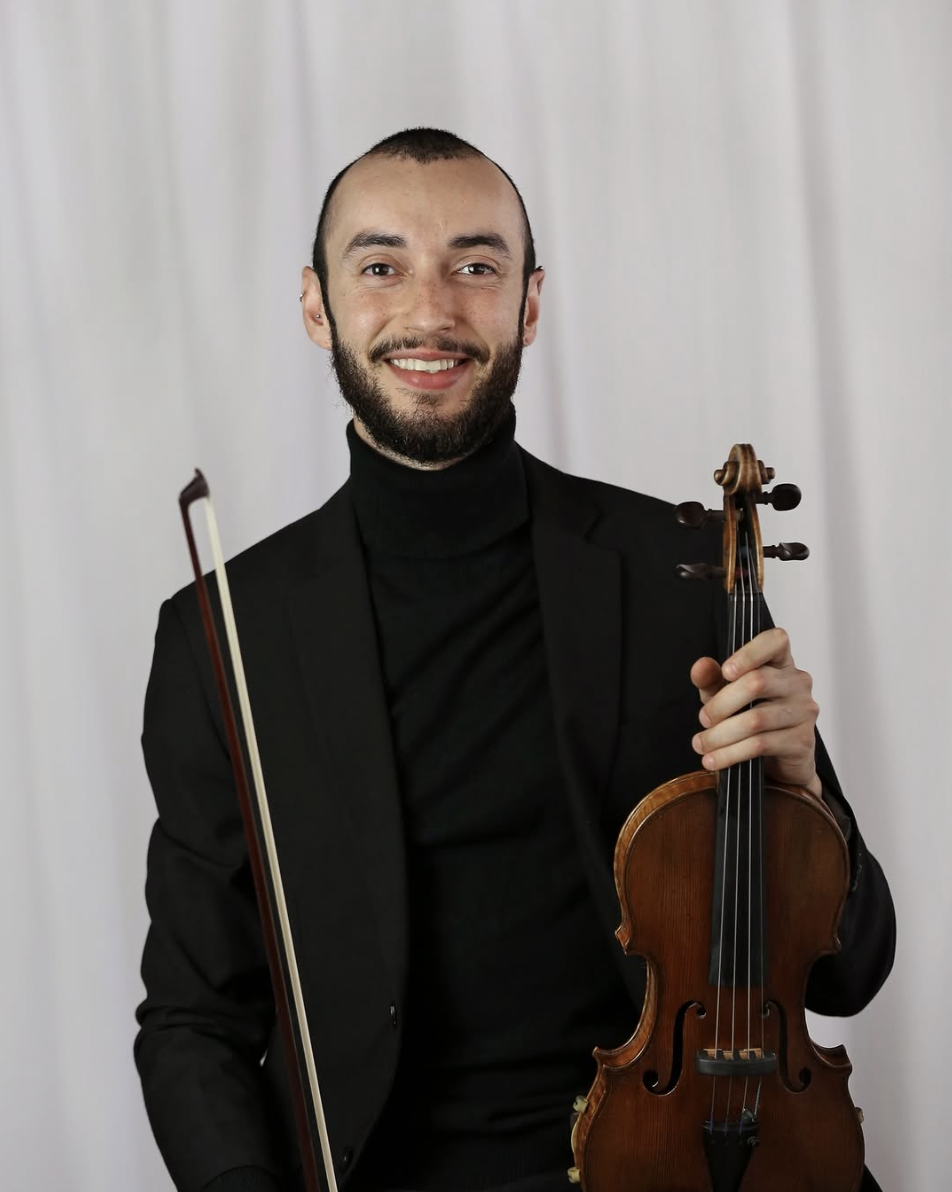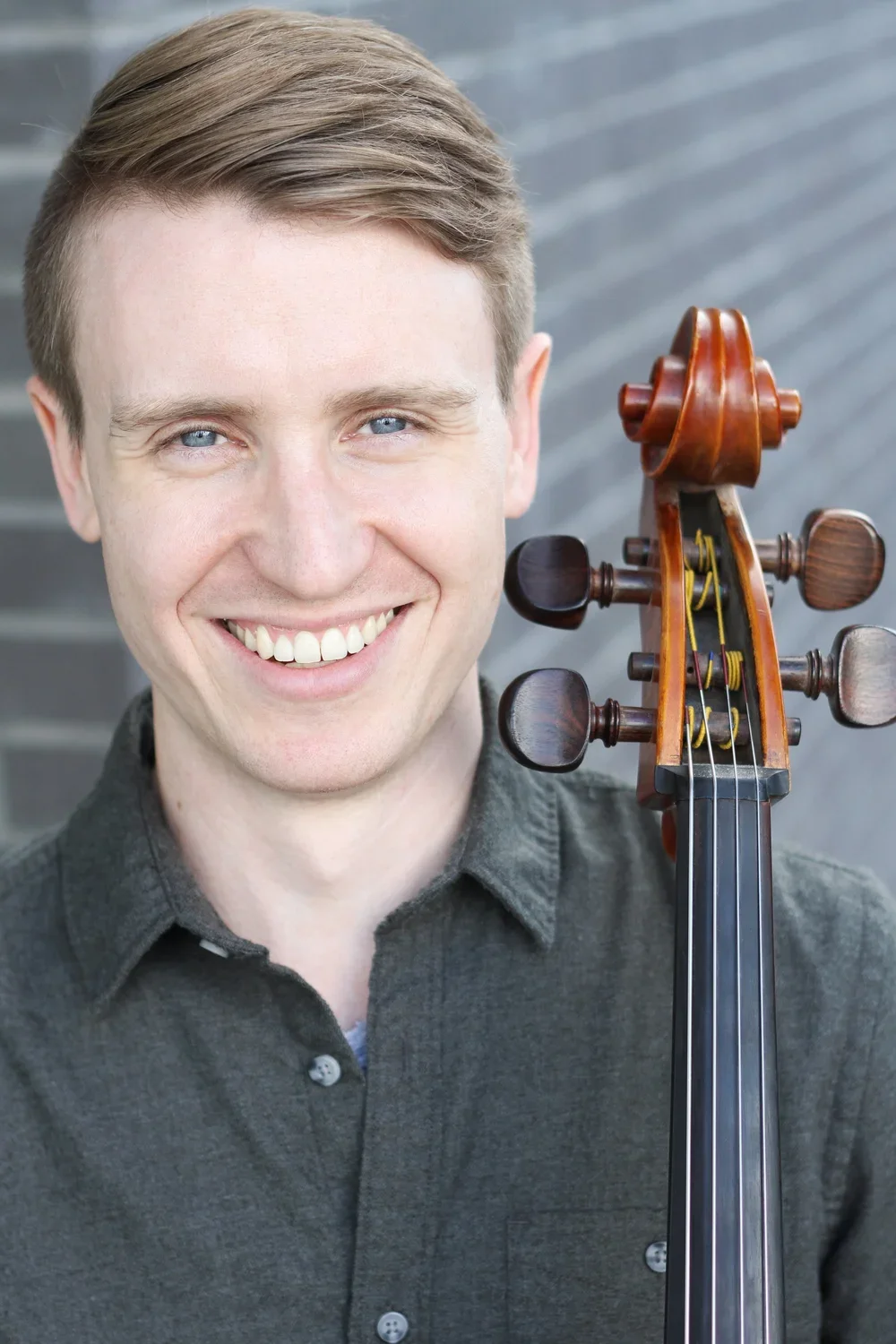Still Bravely Singing
Choral and Remembrance Day Concert
Knox United Church
November 11, 2025 | 3:00pm
Program Notes
Since beginning our season on November 11 for over twenty-five years, the choir has sung many versions of In Flanders Fields. Usually, the choir sings only one at a concert, but this year we will sing eight – all unique in some way, six by Canadians and two by British composers. I find it interesting to see one version in light of another and so it is our job this concert to make those differences apparent.
John Jacobson and Roger Emerson are composers who have set In Flanders Fields to music. The forward to that version has an interesting write up that serves as a great introduction to this concert. Together they wrote the following:
“Flanders, a former county on the North Sea, was the heart of economic and political development in the low countries during the Middle Ages. It included the present Belgian provinces of West and East Flanders and parts of modern France and the Netherlands. With its favourable location on the sea, Flanders became a wealthy trading centre with numerous industrial towns, such as Bruges and Ghent.
Flanders has been the scene of repeated warfare from the time of the Crusades in the 12th century through the Hundred Years’ War in the 14th century, and from the Spanish Wars in the 1600s and 1700s to extraordinary battles during World War I.
In 1919, Dr. John McCrae wrote the stirring poem In Flanders Fields. In fifteen short lines McCrae captures the courage, valour, awe, and stark reality of war. The images he invokes of young people’s lives, once so full of hope and beauty, vanquished by the ravages of warfare, are some of the most moving ever penned. To this day, it continues to be an emotional salute to the young men and women who have given their lives in warfare protecting the lands, the people, and the dreams we cherish most. His challenge to take up the torch of the fallen warriors is as desperate a challenge to remember as any we will find the English language.
On Remembrance Day in North America we often wear a poppy on our lapel to salute fallen warriors. This beautiful gesture was encouraged by the vivid words of Dr. McCrae’s poem. From the intrepid battlefields of Gettysburg and Bull Run, Europe and the Pacific, Korea, the Persian Gulf, Gaza, Sudan, Ukraine, and countless other areas of war in the world before and after, we do our best to remember the sacrifice of others who protected our dreams and realities. Lest we forget, In Flanders Fields will be there to remind us.”
Although McCrae’s words are known to us all, setting them to music does present some difficulties, especially when it comes to singing them. Each of the eight versions that we will sing on this program is unique and must stand on its own. Our job is to express the individuality of each of these versions in order to illuminate the unique compositional qualities of these eight composers and to create the emotional response that they intended.
James Hawn, Artistic Director
-
Kevin Junk - Oboe
We will sing the versions in the order that they written, starting with the oldest. Derek Healey composed his In Flanders Fieldsin 1976 and for years it was the only version that was regularly performed. It begins and ends with an instrumental solo that represents the song of the lark and is also used as an interlude to join the various sections of the piece. Although Healey wrote this for alto recorder, it is often performed using an oboe. It is the only version that makes any attempt to imitate the sound of the lark. As with most versions, it begins quietly (in this case with solo sopranos singing the melody whilst the other voices support this with “oo’s” and “ah’s”). The “We are the dead” section is sung by the tenors and basses before all four voices forcefully enter one after the other on the words “Take up our quarrel.”
-
Eleanor Daley (1993) also begins with a unison solo for sopranos and altos. The full choir does not enter until the “We are the dead” section. As in the Healey version the tempo picks up and the voices again forcefully implore us to “Take up the quarrel with the foe.” The piece gradually slows down and quietens in the final few measures.
-
Selig Sind die Toten is by Renaissance composer Heinrich Schütz and is from his Geistliche Chormusik (1648). It is written in the imitative polyphonic genre which means that each “segment or line of the text is provided with its own perfectly adapted musical line, which is expressed in each of the voices in turn and in combination. These points of imitation are usually self-contained, but often there is overlap and interpenetration reflecting the composer’s understanding of the relationship of text.” Schütz makes use of six of these segments which are easily identifiable when listening to the piece. Schütz also writes this piece for six distinct voices – two sopranos, alto, two tenors, and bass. The text is from the Book of Revelations:
Blessed are the dead, that die in the Lord from now on. Yea, the Spirit speaks: They rest from their labours and their works follow them. -
Non Nobis, Domine by American composer Dan Forrest can be performed a cappella or with full orchestra. It was premiered at the Salzburg Festival in 2018 for the World Choral Festival. Non nobis, Domine is a short Latin hymn used as a prayer of thanksgiving and expression of humility. The Latin motto of the Knights Templar is this sentence which translates as “Not to us Lord, not to us, but to your Name give the glory.” Forrest’s piece begins with a chant to which other voices are gradually added as the volume and intensity increase. Each section moves towards a repeat of the words “Non nobis, Domine” which reaches a climax midway through the piece. After that the piece is written for eight voices which continue to repeat the short text in its entirety. Forrest adds the word “alleluia” and four bars from the end has the tenors and basses repeat, very softly, the words “non nobis, Domine” before ending with an “Amen.”
-
Wagner Barbosa - Violin
Scott McKnight - CelloKirkland Adsett (2006) uses violin and cello as an accompaniment and uses the same melody and harmonization to open the piece and for the words “Take up our quarrel with the foe.” He uses a new melody and harmonization for both the "We are the dead" section and for the closing lines of the poem.
-
Christine Donkin (2009) makes use of four-part harmonization throughout, a cappella. This version is probably the most straightforward and subdued and calls for the judicious use of rubato. Donkin’s version also has the most limited vocal range but shows great intensity. The music for the opening phrase is used again to begin the section with the words “Take up our quarrel with the foe” but with a little bit more forcefulness.
-
Tanya Bergen - Organ
Scott Harrison - Trumpet
Brad Litster - PercussionIn 2010, British composer Karl Jenkins composed his In Flanders Fields for full orchestra and chorus but then adapted it for a version with organ, trumpet, and side drum/snare drum. This version sounds like something that you would hear at a military tattoo. The piece makes extended use of an instrumental section at the beginning, in the middle, and at the end. Throughout, the snare drum keeps a steady and relentless pulse and much of the choral part is in unison.
-
David MacIntyre’s (2012) composition is the most extended of the eight versions and to me, the one that most faithfully expresses the text. As in previous instances, the piece begins with a melody in the sopranos. This is accompanied by the other voices with a staccato and rhythmic chant. MacIntyre uses a distinct musical approach for each section of McCrae’s poem. Musically, the “Take up our quarrel” section is like a fanfare that calls us to take action but not as forcefully as other versions have used. At the end the same melodic line returns in the soprano sections with the other voices accompanying it as they did at the opening.
-
Wagner Barbosa - Violin
Canadian composer Stephen Smith selected Walt Whitman’s The Last Invocation to set to music for SATB choir and solo violin. There is immense tenderness throughout this piece which is especially evident when the choir sings the word “tenderly” almost like a caress. The violin provides an obbligato throughout and at one point incorporating “Gloom of Autumn”, an anonymous tune from The American Vocalist (1849). The voices never rise above mezzo forte. The piece is divided into sections that revolve around four distinct musical motifs, sometimes sung alone or else in various combinations.
-
Paul Mealor’s (2014) composition was first performed at the Festival of Remembrance at the Royal Albert Hall in London with musicians from the Massed Bands of the Guards Division, The Countess of Wessex’s String Orchestra, and Orchestral Musicians from the Royal Marines Band Service and Royal Air Force Music Services and the Choir of Royal Holloway. Obviously, we cannot replicate that performance. Our version features a simply piano accompaniment with the opening section sung by the tenors and basses. The middle section has the sopranos and tenors in unison with the altos and basses providing accompaniment. At times Mealor has all four parts singing in unison with a high tessitura. His version is the only one that omits the “Take up our quarrel” section and instead moves on immediately to “If ye break faith with us who die” and as in the opening with the tenors and basses singing pianissimo. This is simplicity at its best!
-
The most recently composed In Flanders Fields is that of David Rosborough (2020). Once again the opening is a solo for the sopranos with the other three voices vocalizing on an “oo.” The same melodic line appears for the sopranos with the words “Take up our quarrel,” but now the other three parts, singing the same notes they did at the opening, also join in with the text. The middle section, beginning with the words “We are the dead” consists of only eleven bars and those eleven bars are divided into six very short sections separated by rests to better emphasize each thought or idea.
Text and Translations
Derek Healey (b. 1936): In Flanders Fields
Words by John McCrae (1872-1918)
In Flanders fields the poppies blow
Beneath the crosses, row on row,
That mark our place; and in the sky
The larks, still bravely singing, fly
Scarce heard amid the guns below.
We are the Dead. Short days ago
We lived, felt dawn, saw sunset glow,
Loved and were loved, and now we lie,
In Flanders fields.
Take up our quarrel with the foe:
To you from failing hands we throw
The torch; be yours to hold it high.
If ye break faith with us who die
We shall not sleep, though poppies grow
In Flanders field.
Eleanor Daley (b. 1955): In Flanders Fields
Words by John McCrae (1872-1918)
Heinrich Schutz (1585-1672): Selig sind die Toten
From Revelation 14:13
German Text:
Selig sind die Toten,
die in dem Herren sterben,
von nun an.
Ja der Geist spricht,
daß sie ruhen von ihrer Arbeit;
denn ihre Werke folgen ihnen nach.
English Translation:
Blessed are the dead,
that die in the Lord,
from now on.
Yea the Spirit speaks,
They rest from their labours;
and their works follow them.
Dan Forrest (b. 1978): Non nobis, Domine
From Psalm 115:1
English Translation:
Not to us, oh Lord, not to us, oh Lord,
But to your name give the glory.
Latin Text:
Non nobis Domine, non, nobis domine,
Sed nomine tuo da gloriam.
Kirkland Adsett (b. 1970): In Flanders Fields
Words by John McCrae (1872-1918)
Christine Donkin (b. 1976): In Flanders Fields
Words by John McCrae (1872-1918)
Karl Jenkins (b. 1944): In Flanders Fields
Words by John McCrae (1872-1918)
David K. MacIntyre (b. 1952): In Flanders Fields
Words by John McCrae (1872-1918)
Stephen Smith (b. 1966): The Last Invocation
Words by Walt Whitman
At the last, tenderly,
From the walls of the powerful fortress'd house,
From the clasp of the knitted locks, from the keep of the well- closed doors,
Let me be wafted.
Let me glide noiselessly forth;
With the key of softness unlock the locks — with a whisper,
Set ope the doors O soul.
Tenderly — be not impatient,
(Strong is your hold O mortal flesh,
Strong is your hold O love.)
Mike Sammes (1928–2001): For the Fallen
Words by Laurence Binyon (1869–1943), taken from For the Fallen
They shall grow not old, as we that are left grow old:
Age shall not weary them, nor the years condemn.
At the going down of the sun and in the morning
We will remember them.
Paul Mealor (b. 1975): In Flanders Fields
Words by John McCrae (1872-1918)
David Rosborough: In Flanders Fields
Words by John McCrae (1872-1918)
Artist Information
James Hawn, Director
-
James Hawn, Director of Music since 2003, has been active with the Saskatoon Chamber Singers for most of its history, and has been involved with singing and choirs for as long he can remember. Prior to his current appointment as Director, he was a long-time member of the bass section, and served as the choir’s president for ten years. James has also been actively involved in national and provincial choral organizations for over twenty-five years. He is a member of the Saskatchewan Choral Federation (SCF) and Choral Canada and has served for a number of years on both organizations’ boards. In 2006 he was presented with the SCF’s Pro Musica Award, which recognizes “exemplary service to choral music in Saskatchewan.” James was an English language arts teacher for thirty- two years with the Saskatoon Public Board of Education. During that time he also taught music, was involved in choral and church music, musicals, and drama both in the school system and in the community.
Connor Elias, Collaborative Pianist
Photo Credit: Rebecca Fisher
-
Connor Elias is a pianist from Martensville, Saskatchewan. He holds a Bachelor of Music Honours from the University of Saskatchewan, as well as an ARCT in Piano Performance from the Royal Conservatory of Music. Connor has many influences and include his teacher Bonnie Nicholson. Throughout his undergrad, Connor has received various accolades at provincial and national music festivals, including second in the 2023 Saskatchewan Concerto Competition and third in the 2022 Canada West for piano solo. Apart from piano, Connor is involved as a chorister in the Greystone Singers, conducted by Dr. Jennifer Lang. He enjoys teaching his wonderful piano students, laughing with friends, and spending time with his family.
Kevin Junk, Oboe
-
Kevin Junk is the owner of Musicraft Instrument Repair in Saskatoon. Since opening his business in 1987 he has serviced over 60,000 instruments from across Canada. Kevin has a B.Mus (Performance) from the University of Saskatchewan. He received his instrument repair training at Allied Music Corporation in Wisconsin, where he was an apprenticed. Kevin is a frequent presenter at the Saskatchewan Music Conference. He is Second Oboe with the Saskatoon Symphony Orchestra and has been a guest artist with many Saskatoon Bands and orchestras. A visit to Kevin’s shop is an opportunity to see one of the foremost collections of 19th and 20th century band instruments in Canada.
Scott Harrison, Trumpet
-
Scott Harrison is a 30-year freelance musician in the Toronto area, a member of the London Symphonia, and co-founder of the Trillium Brass Quintet. Scott has also conducted the Brampton Symphony Orchestra, and London Symphonia. He maintains a private teaching studio and is a faculty member at the Etobicoke School of the Arts.
Tanya Bergen, Organ
-
Tanya is a freelance pianist, organist, singer in Saskatoon. Tanya performs as a pianist and organist with Halcyon Chamber Choir in Regina and sings with the Saskatoon Chamber Singers.
Tanya served as the Director of Music and Organist at Holy Rosary Cathedral, Regina, from 2016 to 2021 and accompanied the Regina Philharmonic Chorus from 2019 to 2024. Performance highlights include Handel’s Organ Concerto No. 13 “The Cuckoo and the Nightingale” with Per Sonatori Baroque Ensemble and Bach’s Cantata 29 “Wir danken dir, Gott, wir danken dir” with the Regina Philharmonic Chorus.
Tanya holds ARCT diplomas in both piano pedagogy and voice with the Royal Conservatory of Music as well as an ARCCO designation from the Royal Canadian College of Organists, and was the 2016 recipient of the Charles Peaker Prize. She is currently working toward a B. Sc. Nutrition at the University of Saskatchewan.
Wagner Barbosa, Violin
-
Wagner Barbosa is a Brazilian classically trained violinist passionate about sharing music through teaching and performing. He holds a BA in music from the University of Sao Paulo and a Master's in Music in Performance from the University of Saskatchewan, supervised by Dr. Veronique Mathieu. He has years of experience performing with symphonic and chamber ensembles in Brazil and Canada. In Saskatoon, he is a member of the Saskatoon Symphony Orchestra and the Usask Symphony Orchestra where he is the concertmaster. He also performs with Prairie Virtuosi and has been a guest violinist for the Greystone Singers, the Saskatoon Chamber Singers, and the Cecilian Singers. As a Suzuki-trained teacher, he uses music to inspire character, discipline and self-expression in young and adult students. He gives music lessons at his private studio and Long & McQuade South Lesson Centre.
Scott McKnight, Cello
-
Cellist Scott McKnight is an active performer and teacher in Saskatoon. He is a member of the Saskatoon Symphony and co-director of Prairie Virtuosi. In addition to performing, he maintains a private studio, teaches with the Saskatoon Suzuki String Program, and is a sessional instructor at the University of Saskatchewan. Scott holds a master of music degree in cello performance (University of Ottawa), a bachelor of music in cello performance and a chamber diploma (Wilfrid Laurier University).








